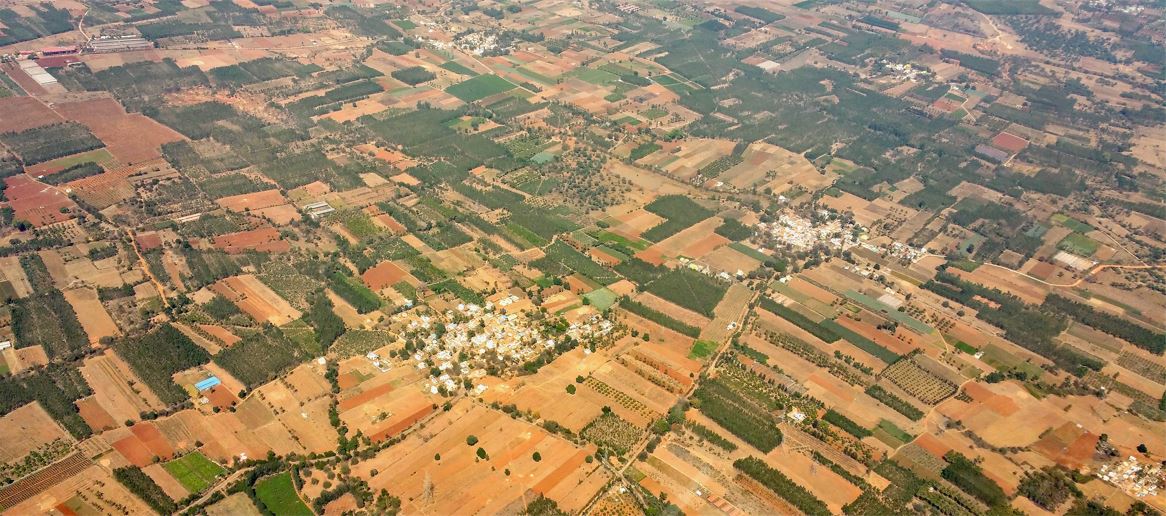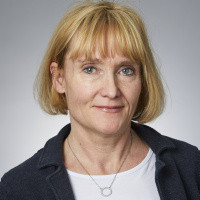She has a deep interest in land rights

Practically all land in Sweden is divided into real estate, owned by someone. We also take much for granted when it comes to real estate: that it can be sold, that there is a register and that we can obtain a mortgage on it. But that is not the case everywhere. And if you – literally – scratch the surface it isn’t that simple in Sweden either. Many interests compete for a limited amount of land. In the centre of those issues stands Eva Liedholm Johnson, Associate Professor in Real Estate Planning and Land Law, and she is having a great time.

Eva Liedholm Johnson is a teacher, researcher and Programme Director for the 5-year Degree Programme in Civil Engineering and Urban Management, and she is responsible for first- and second-cycle courses in land rights. Her students belong to a sought after category: those who can manage rights in different ways, who know about the implementation of development plans and have knowledge about regulations and how they are connected, who know the Swedish Planning and Building Act, the Swedish Joint Facilities Act, the Real Property Formation Act and other important laws concerning property issues.
International educational programmes with a focus on sustainability
Eva Liedholm Johnson is a civil engineer herself from KTH Royal Institute of Technology. She studied at what was then the Civil Engineering programme in Surveying, and she returned to the university in 1996 to teach an at the time unusual category of students. The Soviet Union had recently ceased to exist and KTH was tasked by the Swedish International Development Cooperation Agency, SIDA, to create a Land Management programme with a focus on privatization of land rights, which was financed by the agency.
"The students were economists, legal practitioners and surveyors from various earlier Soviet Republics, the Balkans and not least the nearby Baltic states. After one year of studies in Sweden, they made their degree projects and then brought their new knowledge – a scarce resource in the former socialist states – to their home countries. The educational programmewould later be extended to additional countries in East Africa, e.g. Kenya, Uganda and Tanzania."
Eva Liedholm Johnson helps establish higher educational programmes with a focus on sustainability in other locations as well, like Kazakhstan. In Kazakhstan specifically, the EU financed project ”Lifelong learning for sustainable development” has recently been completed.
"As teachers we can also learn a lot from how things work, and don’t work, in other countries", says Liedholm Johnson.
She has two doctoral students in Tanzania, who study conflicts regarding agricultural land and large scale land acquisitions.for example when international corporations acquire the right to lease land for a very long time to cultivate a specific crop or to establish mines and extract minerals. In societies with informal land rights – a common situation globally – it can have a large effect on many people.
Balancing between rights and interests
As is well known, people can be affected by mining and mineral extraction in Sweden as well. And it isn’t fully defined what is included when you own land.
"According to the Swedish Minerals Act, those who have the prerequisites to explore or mine a mineral deposit can be granted a permit to do so, regardless of who owns the land. A large number of so-called concession minerals, that require a permit to be mined, among them many metals, are regulated in the act. The landowner can use other minerals for household needs. But a permit is needed for such minerals as well if the landowner wants to use them commercially. A current example of this is the limestone that Cementa wants to continue mining on Gotland."
Sweden is the EU’s foremost mining nation and the lion share of the EU’s iron ore is mined here, as well as large amounts of other metals, such as gold and silver. The EU as a whole imports two-thirds of its metal, a demand that is increasing due to, among other reasons, the climate transition with an increased demand for batteries etc. The agency the Geological Survey of Sweden, SGU, regards the Swedish bedrock as underutilized. With that in mind, it is understandable that we have laws that make it possible to explore and protect investors as well, in addition to considering the rights of the landowner.
In several studies for e.g the Swedish Agency for Growth Policy Analysis, Eva Liedholm Johnson has reviewed which formal permits are needed to open a mine in Sweden and five other leading mining regions – Finland, Poland, Ontario, Western Australia and Minas Gerais. She concluded that Sweden and Finland stand out in the way that landowners in Finland are compensated for prospecting and landowners in Sweden get mineral compensation. Since 2010 Swedish landowners also get 25 per cent on top of the market value when a property is expropriated for e.g, mining.
"It is a very long process from an exploration permit to a mine in Sweden. This depends largely on balancing rights and interests, as nature conservation, reindeer husbandry and water protection areas set conditions for permits for prospecting and mining. In some cases, activities can be combined, e.g. exploring minerals in active forestry and if you look at land usage as a whole, a small part is used for mining."
More dialogue and collaboration is a way forward
There is an anxiety in the public that land and forests are secondary compared to mineral extraction and about the possible negative consequences of a new mine being opened. A current example is the large findings of rare earth metals in Norra Kärr, near Gränna, that – according to the opponents of a planned quarry – threaten the lake Vättern as a drinking water supply. And no new mine has been opened in Sweden in more than ten years.
"Those who apply for a prospecting permit and later an exploitation concession must put a lot of work into consequences", says Eva Liedholm Johnson. "It requires dialogue and communication with the landowner and other rights holders. People must be allowed time to think and to influence different solutions. Different agencies must also have a well-functioning dialogue."
Dialogue and collaboration is something Eva Liedholm Johnson herself practices. Together with the faculty of engineering at Lund University, Luleå University of Technology and Chalmers University of Technology she has been working on a common research project aimed at producing a ’roadmap’ for digitalization and ethics for the education of civil engineers within the built environment. She also teaches property development, land law and governance of land and water in several programmes at KTH.
"The things I get to work on are really stimulating, concludes Eva Liedholm Johnson. Those of us who work with land rights think about development, what should be preserved and the way forward. And we do it in an environment where the conditions constantly change. "
Text: Johan C Thorburn
This is the 24th article in the School of Architecture and the Built Environment 's series of articles on selected research, education or collaboration initiatives from each department. You can find the previous articles here: Archive
